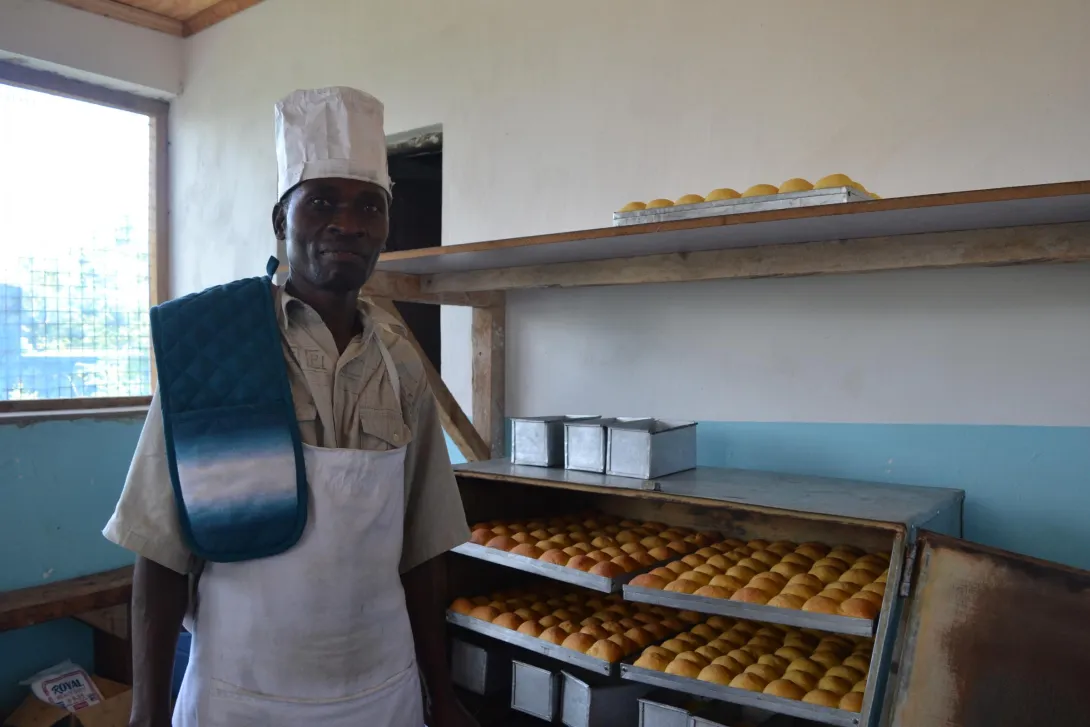
Greetings,
I am a volunteer business teacher at a primary school in Takaungu on the Coast of Kenya. The Class 6,7 & 8 have been learning about business as part of a pilot project to start income generation activities to support the school and needy children. They wrote business plans and the best plan was awarded capital to start the business....The Best Takaungu Bakery opened in June 2015.
Now we have started, there are many questions that come up about the baking, so I hope we can get answers on this forum.
The baker makes between 250 - 300 scones per day, these are lie the yeast rolls we have in the US, not the British scones. They weigh about 40 grams each. First question is, per 100, approximately how much flour should be used? They are also using sugar, milk, salt, a bit of oil. The baker has been using baking powder as a preservative, but I do not think it is necessary. I am adept at doing the business training, but am not an expert baker by any means. Hope this forum will be a good resource
(or scones as you might call them - UK baker here!)
I scale dough to be 140g for rolls normally - that gives a good size roll - big enough for a quarter pounder hamburger. Smaller for dinner rolls might be down to 100g. That's dough weight - if you have a roll that's 40g cooked weight then you need to know how much dough is in it - I suspect about 60g. (seems very small to me though)
To work out the flour you need to know the hydration you're working to. If you start with a basic 60% hydration dough, then you want to divide the dough weight by 1.6 to get the flour, so if you go for 60g dough weight then its 60g / 1.6 = 37g with 60-37 = 23g water.
So for 100 rolls you need 100 * 37g = 3.7Kg flour and 100 * 23g = 2.3Kg water. plus salt and yeast. (You don't need milk, sugar or oil for basic rolls, but substituting some milk for the water will make softer rolls and some oil or butter will help them last a little longer)
To work out the salt - that'll depend on personal tastes, local traditions, etc. but in the UK the guidelines are no more than 1% salt per baked weight, so a 40g roll will have 0.4g of salt in it, so for a batch of 100, then it's 40g salt.
Yeast - this will depend on the type of yeast, but for dried yeast then 7g per 500g of flour is a good starting point, so 3700/500 * 7 = 52g.
Hope that gives you something to start working with.
-Gordon
Are they risen with yeast? Or are they baking powder biscuits?
If yeast is raising them, no baking powder is needed.